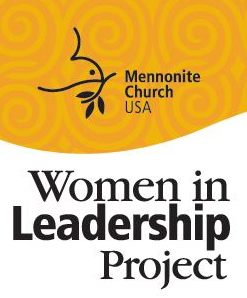 Regina Shands Stoltzfus teaches in the Peace, Justice and Conflict Studies department at Goshen (Indiana) College, where her courses include Race, Class and Ethnic Relations; Personal Violence and Healing; Spiritual Path of the Peacemaker; and Transforming Conflict and Violence. She is co-founder of the Roots of Justice Anti-Oppression Process (formerly the Damascus Road Anti-Racism Process). Regina is a member of the Steering Committee for Women in Leadership.
Regina Shands Stoltzfus teaches in the Peace, Justice and Conflict Studies department at Goshen (Indiana) College, where her courses include Race, Class and Ethnic Relations; Personal Violence and Healing; Spiritual Path of the Peacemaker; and Transforming Conflict and Violence. She is co-founder of the Roots of Justice Anti-Oppression Process (formerly the Damascus Road Anti-Racism Process). Regina is a member of the Steering Committee for Women in Leadership.
These are hard times. On my best days, I want to believe that the universe is laboring to bring forth what so many of us long for — more justice, more peace. More food for the hungry. More safe spaces. More of what many have come to envision as “the beloved community.”
Would that such a world emerged from gentle acts like planting a garden — or what my wishful thinking (and non-master gardener status) imagines to be the gentle act of planting a garden. I know, from watching my gardening and farming friends that the beauty and bounty of the earth emerge from hard work and long patience. You get the metaphor.
These days I am reminded of the messy act of building a new world, and I wrestle with the corresponding flurry of advice for hard times — the mantra of self-care. Now, I believe in self-care. I talk about it a lot. I try to practice it.
But as much as I believe in the necessity of self-care, I also believe we have to work at building the capacity to sit in the mess. We have to sit in the mess, and sometimes we have to bring the mess.
Systems and structures that harm marginalized people — that support and perpetuate racism, sexualized violence and anti-immigration sentiments are not just fueled by easily identified “bad guys.”
 When faced with the issue of violence in our midst, we too often succumb to the impulse to go directly to biblical texts that teach love and forgiveness, with an implicit message: forget and let’s move on. Those harmed are urged to forget, to sacrifice themselves for the sake of unity. But any unity that results from such a formula is false; it is the illusion of unity that comes when one party is forced to pretend that their experience, their way of knowing, does not matter or worse, is disruptive.
When faced with the issue of violence in our midst, we too often succumb to the impulse to go directly to biblical texts that teach love and forgiveness, with an implicit message: forget and let’s move on. Those harmed are urged to forget, to sacrifice themselves for the sake of unity. But any unity that results from such a formula is false; it is the illusion of unity that comes when one party is forced to pretend that their experience, their way of knowing, does not matter or worse, is disruptive.
We must face head on what it means to live as a body — a body that is broken, battered and bruised and calls out those that do the battering. Our communities must not only preach love and justice, they must embody it — bear love and justice simultaneously within the body.
As the body is made of many members, so the many members bring with it different perspectives that reflect a variety of social locations and experiences. A faithful peace church perspective must go beyond reconciliation to justice.
Part of moving beyond the mess is bearing witness. By bearing witness, we acknowledge the truth of each other’s experiences. Bearing witness is why we read scripture — to hear the truth our faith narratives. Bearing witness means placing oneself on the side of those who are victimized, while those who perpetrate abuse do everything they can to cause everyone to ignore and/or forget. Judith Hermann, in her groundbreaking work Trauma and Recovery, explains the power behind the urge to silence pain, and how this silencing aids systems of oppression: The first line of defense is secrecy and silence. If secrecy fails, the credibility of the victim is attacked in order to silence them. If those victimized keep telling their story, the perpetrators and those who benefit from the abuse try to make sure no one listens by making a series of arguments. These include saying it never happened, that the victims are lying or exaggerating or somehow brought the violence upon themselves. And finally, if the telling persists, those who are speaking out are told it is time to forget and move on.
What if, instead of all this, we decided as a body we would sit in the mess together? That we would listen, and speak, and hold on to one another for dear life?

